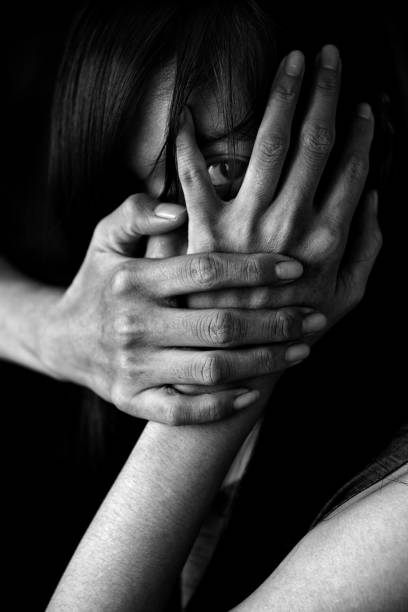As if making love to him was not an option but an obligation, my no has lesser value than his no, and it’s justified because he earns for the family.
The Legal Rapist

Both contemporary and ancient societies have had been grappling with countless crimes such as the crimes which are nugatory in nature while other crimes which are atrocious, disgraceful and unpardonable in nature like rape, murder, etc. The crimes committed not only have a profound impact on the physical and mental health of the victims which is associated with long-term ramifications but to the society at large. Rape is one of the heinous crimes, as it directly destructs women by murdering her valuable ornaments of her soul, her chastity, solemnity. Even though the Indian statutes have recognised the grave impact it has over the society after the Justice Verma Committee Report, there still are kinds of rape which are not considered or legally recognised by our legal system and its best exemplar is “Spousal Rape” or “Marital rape”.
Even after being a major challenge for both society and the legal system, many people among us don’t know or want to know about marital rape. Literally, marital rape refers to forced sex by the spouse with his better half without her assent or gained assent by way of coercion, undue influence etc. A nine-nation study within the European Union found that current or ex-partners were the perpetrators of around 25% of all sexual assaults, and that violence was more common in assaults by ex-partners (50% of the time) and partners (40%) than in assaults by strangers or recent acquaintances (25%).
According to a recent survey in the context of cases of marital rape in India, which shockingly revealed that 1 in 3 men admit to raping their wives, and 1 Indian woman is raped by her husband every 3 seconds. Many, including women, believe that marital rape is a necessary custom which should be followed for so-called “working and healthy relationship”. Some also claim that it is only the way to express their limitless love for their spouse and the marriage has given them the license to do such an act.
Our legal system does not give any concrete protection to the victims of marital rape. Under the Hindu Marriage Act, 1955 one of the “conjugal duties” of the wife is to provide sexual satisfaction to her husband, a very outdated thought congruent to the thoughts of a patriarchal society. Earlier the Section 375 of the IPC dealing with rape clearly stated in its exception that “sexual intercourse by a man with his own wife, the wife not being under 15 years of age, is not rape” and no other statute or law recognizes marital rape. The victims have only recourse to civil remedies provided under the Protection of Women from Domestic Violence Act, 2005 which appropriate the damages caused to them. It is a crying shame as even after so many decades, marital rape has not been criminalized in our country.

But in cases such as Budhan Choudhary v. the State of Bihar and State of West Bengal v. Anwar Ali Sarkar, the Supreme Court held that any classification under Article 14 of the Indian Constitution is subject to a reasonable test that can be passed only if the classification has some rational nexus to the objective that the act seeks to achieve. But Exception 2 frustrates the purpose of Section 375: to protect women and punish those who engage in the inhumane activity of rape. Exempting husbands from punishment is entirely contradictory to that objective. Put simply, the consequences of rape are the same whether a woman is married or unmarried.
Moreover, married women may actually find it more difficult to escape abusive conditions at home because they are legally and financially tied to their husbands. In reality, Exception 2 encourages husbands to forcefully enter into sexual intercourse with their wives, as they know that their acts are not discouraged or penalized by law. Because no rational nexus can be
deciphered between the classification created by the Exception and the underlying objective of the Act does not satisfy the test of reasonableness, and thus violates Article 14 of the Indian Constitution.
The following are the quintessential arguments that inculcated the idea that there should be criminal laws to protect the interest of victims of such social evil as the damages were untreatable and remained a scar in their life:
- Out of the total number of rapes reported to NFHS (though it is an informal survey whose premise was to provide anonymity), 97.7% rapes were committed by the people known to the victim, out of which marital rapes account for 2/3rd. Thus the sheer intensity of marital rape suggests that it should be criminalized.
- There have been many heart-wrenching stories of women raped every night, even during pregnancy and childbirth. It is a physical as well as mental trauma because the perpetrator is known to the person, often close.
- Marital rape is considered as the violation of Fundamental Right guaranteed under Article 14 of the Indian constitution which guarantees the equal protection of laws to all persons.
- By depriving married women of an effective penal remedy against forced sexual intercourse, it violates their right to privacy and bodily integrity, aspects of the right to life and personal liberty under Article 21 of Indian constitution, by making a distinction in them from unmarried women.
- Marital privacy – which justifies laws such as the marital rape exception – is a fundamental denial of society’s commitment to treating all persons with equal concern and respect.
- Many countries had also made it a crime for a husband to force his wife to have sex such as Malaysia which changed its laws to that effect in 2007, Turkey in 2005; and Bolivia in 2013 etc. The United States began criminalizing marital rape in 1970s and most European countries in the 1990s.
- Even the United Nations recommended India to criminalize marital rape.
- And in the Indian context, the Law Commission’s report (2000) and Justice Verma panel’s (2013) recommended to do away with the exemption granted to marital rape in the laws.
But according to many scholars and legal luminaries such as Flavia Agnes believe that it should not be criminalised or coming under the term of “rape”. The following are arguments are put forward for it:
- It is very subjective and intricate to establish whether consent was acquired or not. Sometimes women use denying intercourse even if she is comfortable with, as a tool for punishment or getting their demands fulfilled.
- If marital rape is criminalized without any adequate safeguards it could be misused like the current dowry law by the dissatisfied wives to harass and humiliate their Husband and his family.
- Marriage is the sacramental institution and application of such laws will wither away its basic fabric as it will lead the investigation to the complex relationship between the couple.
- This law will more likely to be passive and potentially minuscule law. Since less educated and rural women are not likely to use it and the higher and elite strata women can be said to empower enough to say no for this kind of acts of their rapist husband’s.
- The concept of marital rape, as understood internationally, cannot be suitably applied in the Indian context due to various cultural and social factors like level of education, level of illiteracy, poverty, myriad social customs and values, religious beliefs, the mindset of the society to treat the marriage as a sacrament, etc.
Wherever women are given their due respect, even the deities like to reside, and where they are not respected, all action remains unfruitful.
Manusmriti
Although these reasons are justifiable, we can no longer carry out with this current scenario as we cannot evade from our responsibility. If you ask me, I’d say that legal reform will not be sufficient, we’d also need a social reform, which could eradicate such kind of social evil and teach the members of our society to respect to each and every woman in this world.
